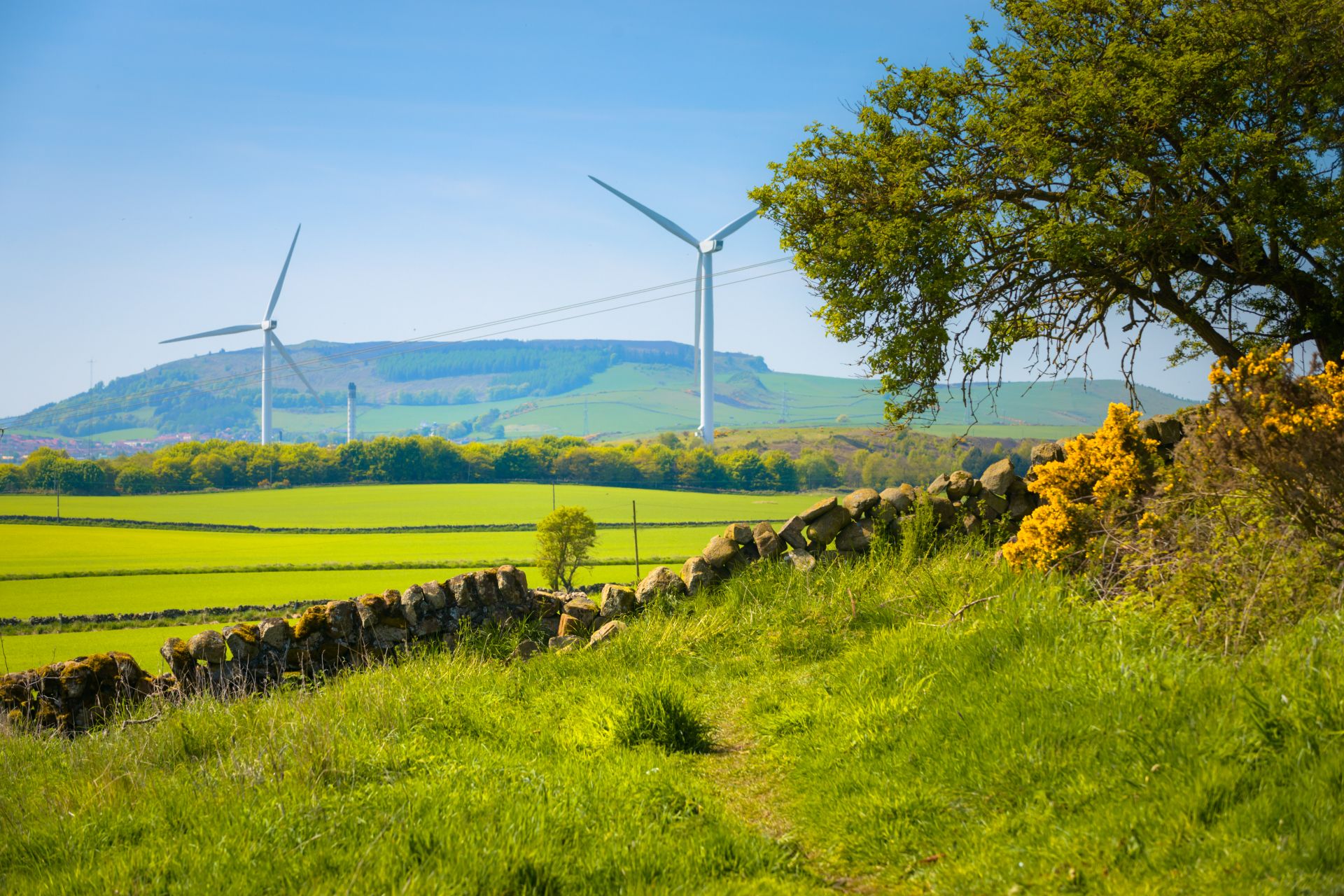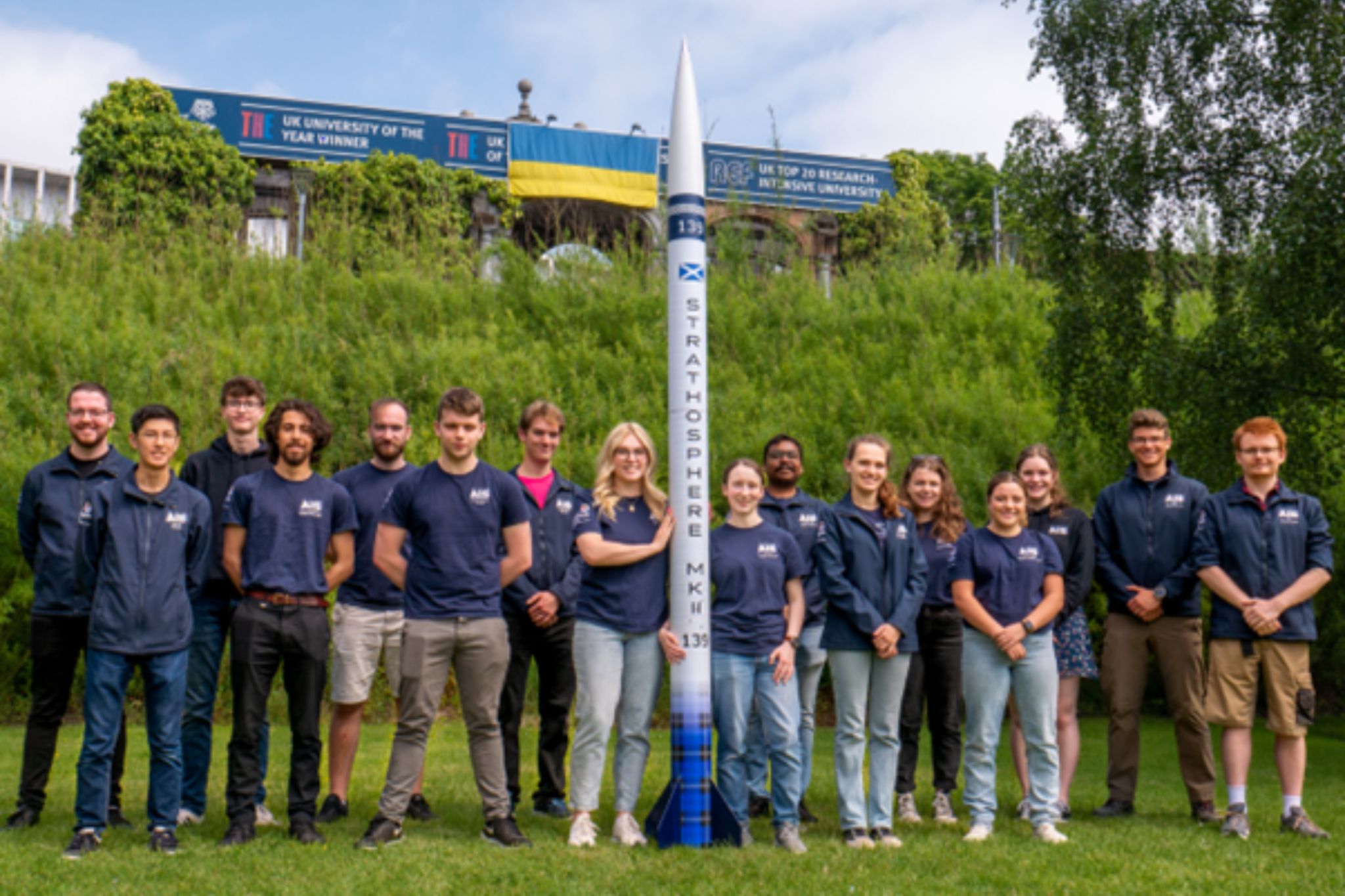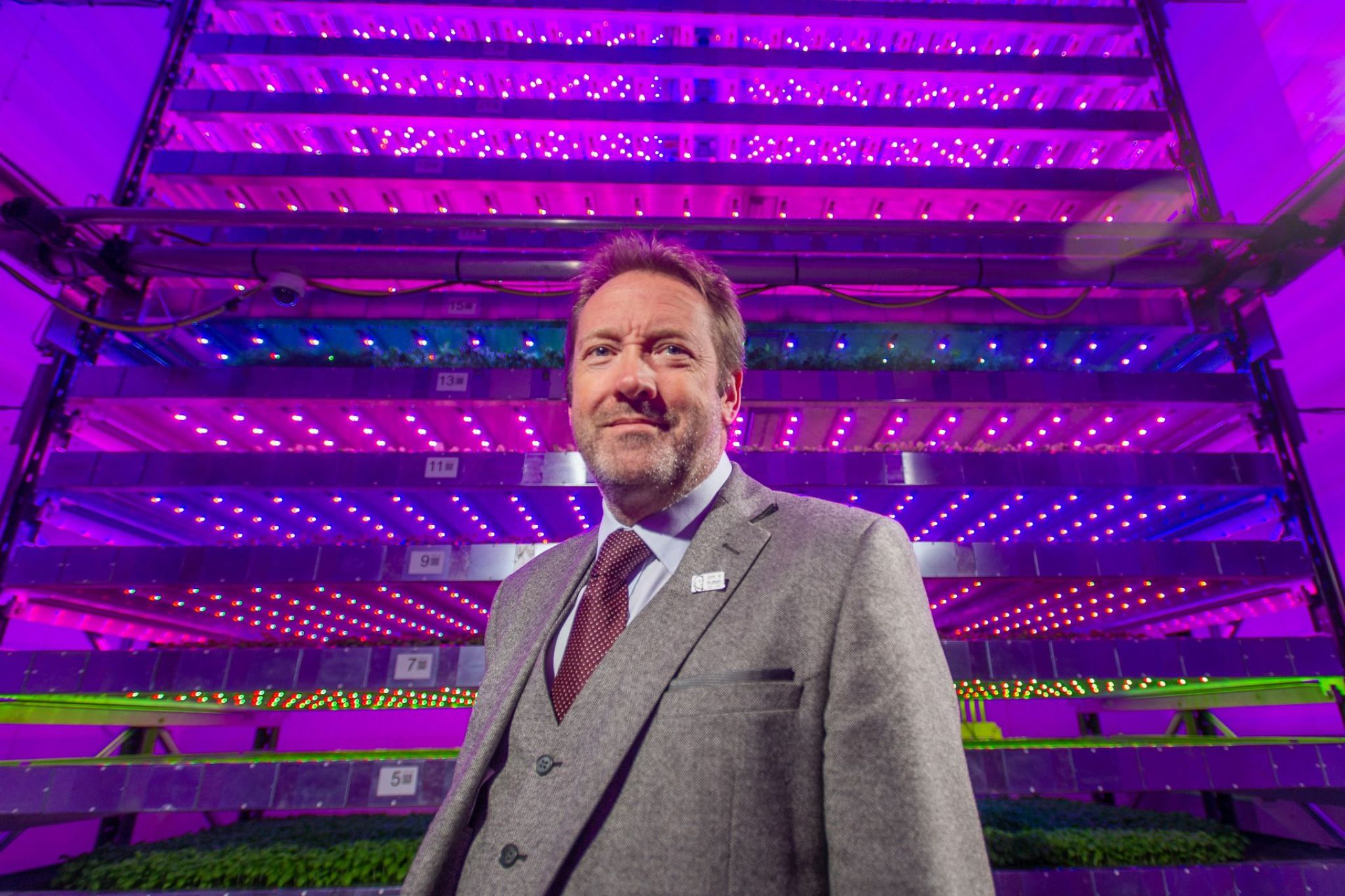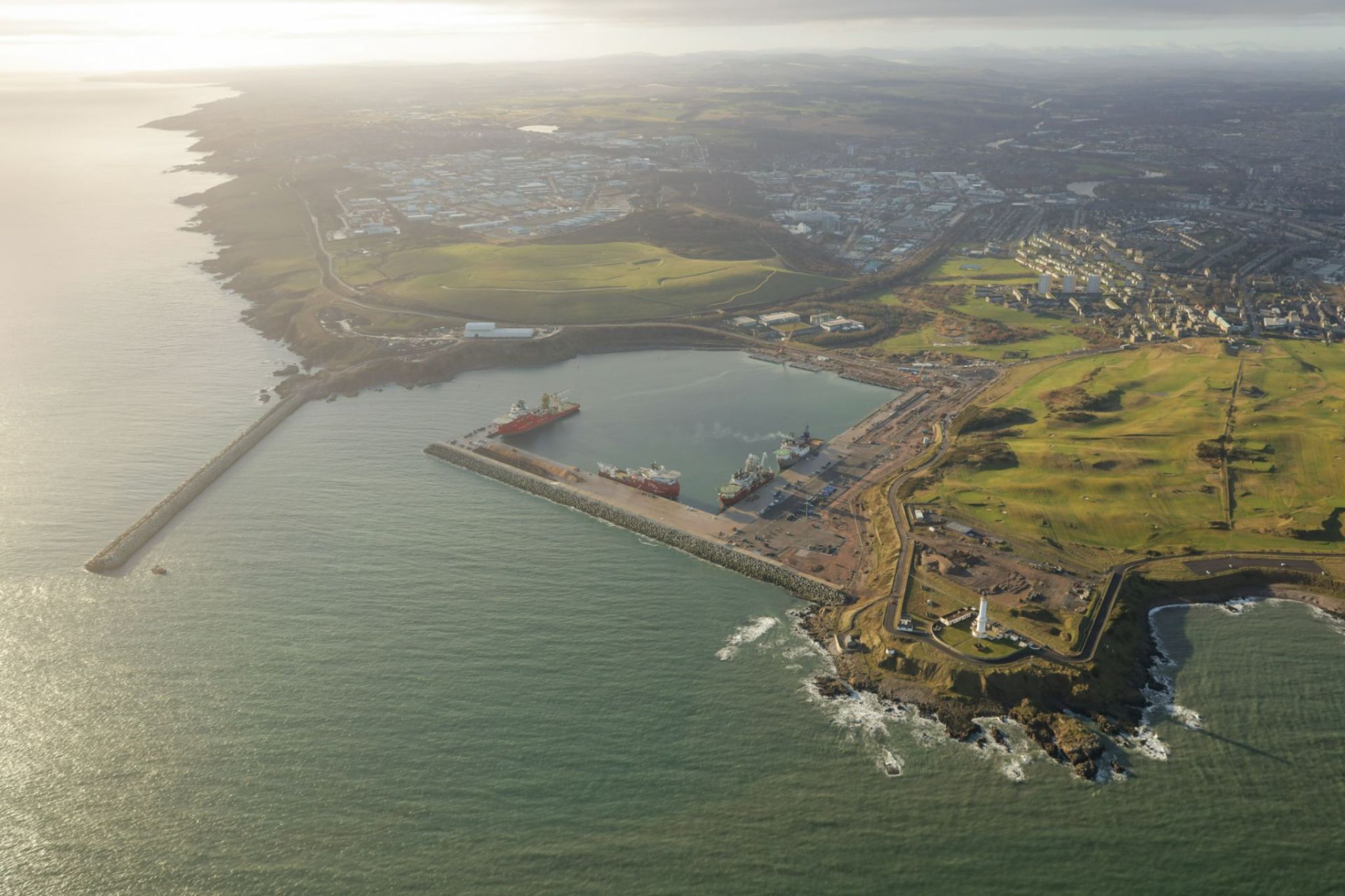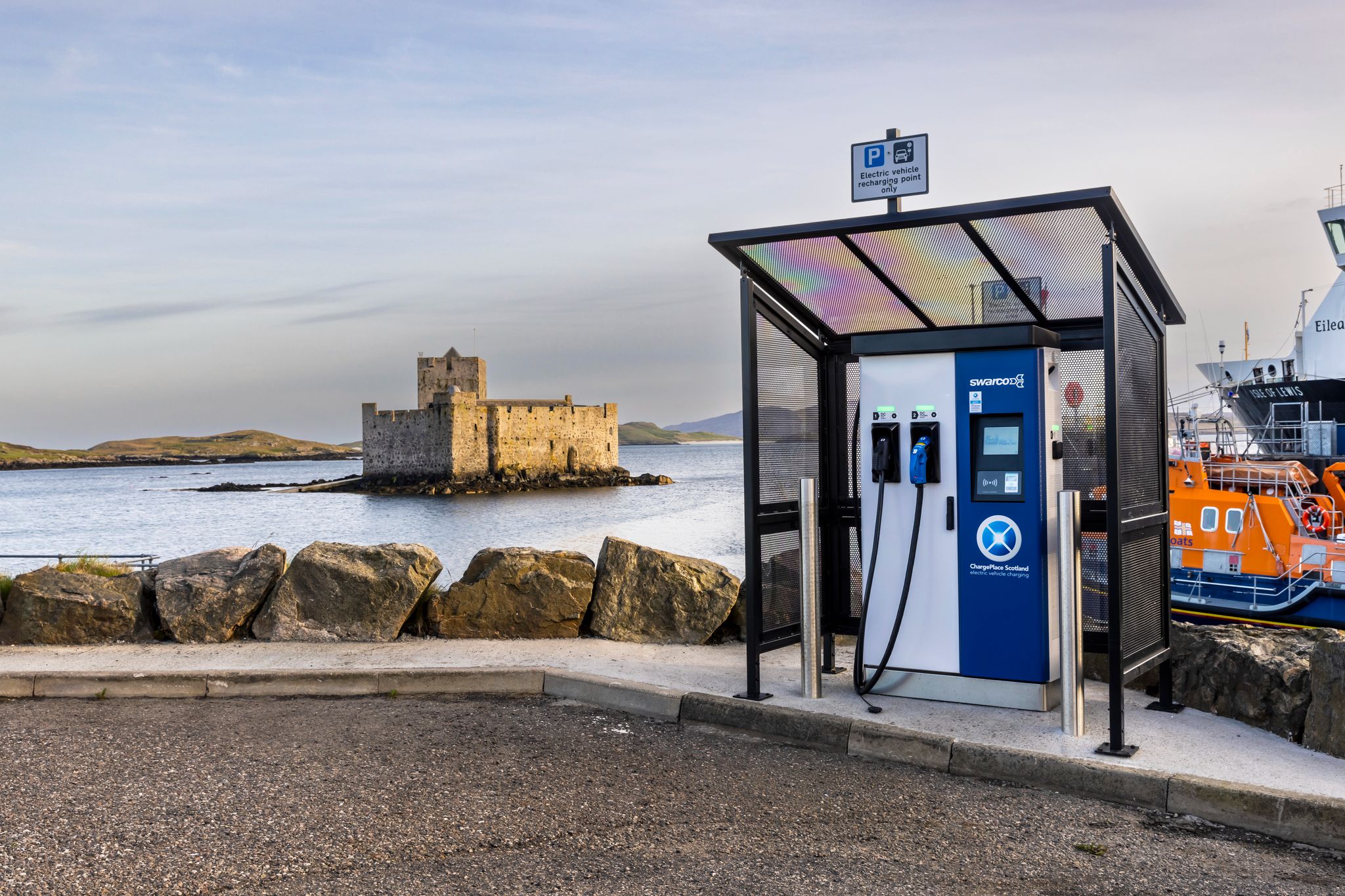
Castlebay charging point on Barra
© VisitScotland / Kenny Lam
Green Hydrogen and Innovative Projects
Green hydrogen is produced via electrolysis using renewable energy, splitting water into hydrogen and oxygen, with no carbon emissions. It can decarbonize sectors that cannot fully electrify, such as transportation and heavy industries. Scotland is pioneering several green hydrogen projects, including:
- Hydrogen-powered flight: Long-range zero-emission flights.
- Floating hydrogen facility: Offshore green hydrogen production.
- Hydrogen heating network: For sustainable heating solutions.
- Tidal-powered electrolyser: Using tidal energy for hydrogen production.
- Hydrogen-powered gin: Renewable energy in the spirits industry.
- The country also boasts a significant number of hydrogen-powered vehicles, including buses, trains, and refuse trucks.
Scottish Power has planned a green hydrogen facility near the UK's largest onshore wind farm in Whitlee near Glasgow.
Glasgow
As part of the Green Hydrogen for Scotland partnership, Scottish Power has planned a green hydrogen facility near the UK's largest onshore wind farm in Whitlee near Glasgow. This facility will support carbon-free transport, cleaner air, and industrial hydrogen demand, aligning with Glasgow's goal of a zero-emissions vehicle fleet by 2029.

V&A Dundee
© Dundee City Council
Dundee
The James Hutton Institute's HydroGlen project in north-east Scotland aims to make farming communities self-reliant, low-carbon energy producers. The project, based at the Glensaugh research farm, combines renewable energy generation and hydrogen production with energy storage.
Arbikie Distillery, located between Dundee and Aberdeen, aims to be the world’s first hydrogen-powered distillery, utilizing a 1 MW wind turbine, electrolyser, hydrogen storage, and hydrogen boiler system, in collaboration with Locogen and Logan Energy.
Aberdeen beach
Aberdeen
Aberdeen has positioned itself as a leading hydrogen city since 2015 with its Aberdeen Hydrogen Strategy. The city is home to the world’s first fleet of double-decker hydrogen-powered buses, saving one kilogram of CO2 per kilometer. This initiative is part of the H2 Aberdeen project led by Aberdeen City Council.

Friends explore St Andrews
© VisitScotland / Peter Dibdin
St Andrews
The University of St Andrews received £300,000 from the Scottish government for a new hydrogen accelerator initiative. This program leverages university expertise and partnerships to advance hydrogen technology and maximize economic opportunities in zero-emission mobility solutions. It aims to enhance expert capacity, improve coordination among key initiatives, and foster new industry-government partnerships.
